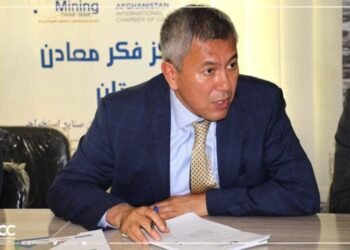President Nana Akufo-Addo has expressed concern over the under-utilization of national service personnel within government institutions, emphasizing the need for a more effective deployment strategy.
The President highlighted the government’s investment in the National Service Scheme (NSS) and its expectation of tangible returns, including service delivery and professional development.
“The policy will enhance capacity, reinforce structures, and enable the National Service Scheme to mobilize effectively the ever-increasing number of graduates to areas of national priority. This policy marks a significant milestone in our efforts to harness the potential of our youth towards nation-building.”
President Nana Akufo-Addo
The President outlined plans to regulate deployment processes and enhance learning opportunities during national service, aiming to optimize the impact of service personnel across various sectors. The comprehensive National Service Policy represents a paradigm shift, providing a structured framework for the development of service personnel and preparing them for the transition from school to the workforce.
The policy aims to elevate the NSS beyond mere mobilization and deployment to become a world-class institution focused on shaping service personnel for success in their professional careers. The policy document offers clear direction for the scheme’s evolution, aligning it with the government’s broader agenda to ensure that service personnel are adequately equipped to contribute meaningfully to national development.
The President also announced plans to introduce pedagogy training in collaboration with the National Teaching Council, an MSME accounting programme to help formalize the informal sector, and specialized partnerships to promote tourism in Ghana through the NSS support programme.
Additionally, the policy will expand experimental agricultural programmes for national service personnel under the Sekyere Kumawu economy enclave with support from the Ministry of Finance under the Ghana Care Obaatanpa Programme and Agri-Impact Ghana. A metric application system will be implemented to improve efficiency and eliminate waste and redundancy, and ICT hubs will be established to provide training for service personnel in IT solutions tailored to meet the needs of communities across Ghana.
Potential Impact of the Policy Document

President Akufo-Addo encouraged the management of the NSS to leverage strong partnerships with domestic and international stakeholders to ensure the policy is successful. He added that the government was committed to making available adequate annual budgetary resources for the successful implementation of the policy.
Mr. Osei Assibey Antwi, Executive Director of the National Service Scheme indicated commitment to ensure policy coherence, value for money, and the determination of success, the policy will be subjected to diligent review.
“All programs, projects, and activities of the scheme will be aligned with the various policy strategies, monitored, and evaluated regularly. I strongly believe that this can be done by upgrading the Scheme from its status to a more noble and standardized institution with properly defined structures.”
Mr. Osei Assibey Antwi, Executive Director of the National Service Scheme
The President unveiled a bold 10-year National Service Policy, signaling a commitment to channel the energies of service personnel toward national development goals. The policy aims to provide a structured framework for directing resources and efforts toward maximizing state interests and aligning with the aspirations of service personnel.
The core focus areas of the policy include the deployment of personnel to national priority sectors crucial for socioeconomic development, the inculcation of national values in service personnel, and the establishment of effective mechanisms to measure achievements, among others.
President Akufo-Addo charged the NSS to align its operations with the long-term development objectives of the country, mentioning education, health, and information and communication technology (ICT) as some of the sectors they could tailor their programmes along. Others include digitalization and graduate youth in agriculture programmes to support import substitution and address food security challenges.
By adopting these strategies, the policy document aims to ensure that service personnel are not only well-prepared for the transition from school to the workforce but also have access to the resources and support they need to succeed in their post-service careers.
READ ALSO: Okyeame Kwame Unfolds Basis For Declining Seat On Manifesto Committee























